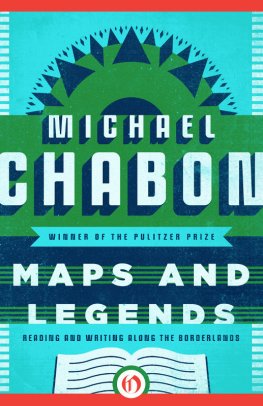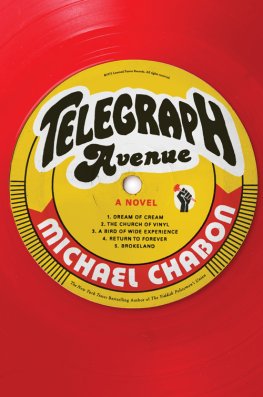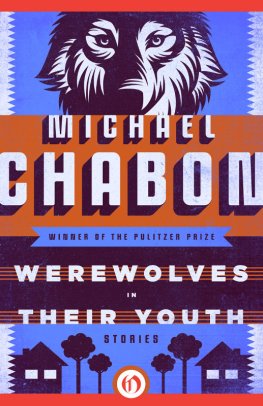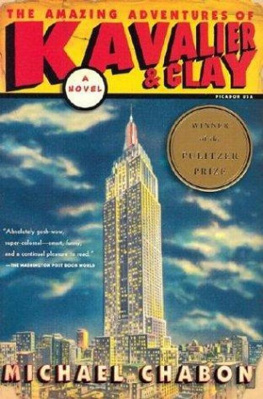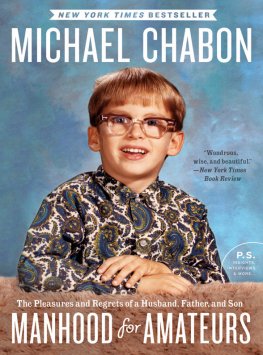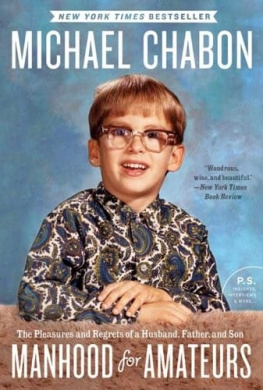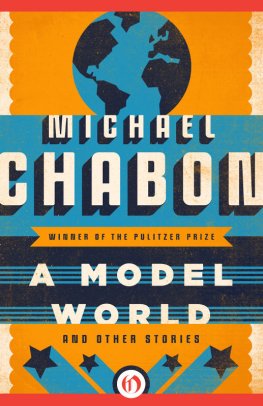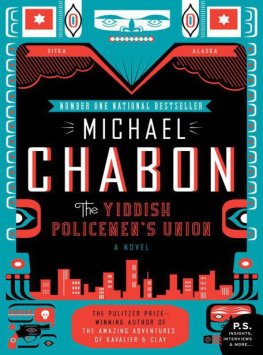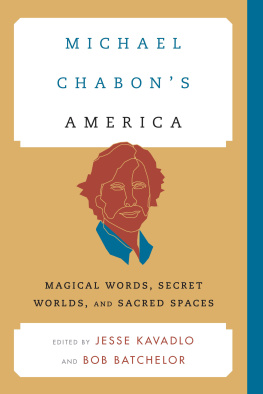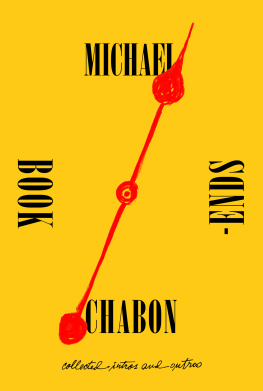Michael Chabon
Maps and Legends: Reading and Writing Along the Borderlands
The more I dive into this matter of whaling, and push my researches up to the very spring-head of it, so much the more am I impressed with its great honorableness and antiquity; and especially when I find so many great demi-gods and heroes, prophets of all sorts, who one way or other have shed distinction upon it, I am transported with the reflection that I myself belong, though but subordinately, to so emblazoned a fraternity.
Herman Melville, on the writing of fan fiction
TRICKSTER IN A SUIT OF LIGHTS THOUGHTS ON THE MODERN SHORT STORY
ENTERTAINMENT HAS A BAD name. Serious people learn to mistrust and even to revile it. The word wears spandex, pasties, a leisure suit studded with blinking lights. It gives off a whiff of Coppertone and dripping Creamsicle, the fake-butter miasma of a movie-house lobby, of karaoke and Jgermeister, Jerry Bruckheimer movies, a Street Fighter machine grunting solipsistically in a corner of an ice-rink arcade. Entertainment trades in clich and product placement. It engages regions of the brain far from the centers of discernment, critical thinking, ontological speculation. It skirts the black heart of life and drowns lifes lambency in a halogen glare. Intelligent people must keep a certain distance from its productions. They must handle the things that entertain them with gloves of irony and postmodern tongs. Entertainment, in short, means junk, and too much junk is bad for you bad for your heart, your arteries, your mind, your soul.
But maybe these intelligent and serious people, my faithful straw men, are wrong. Maybe the reason for the junkiness of so much of what pretends to entertain us is that we have accepted indeed, we have helped to articulate such a narrow, debased concept of entertainment. The brain is an organ of entertainment, sensitive at any depth, and over a wide spectrum. But we have learned to mistrust and despise our human aptitude for being entertained, and in that sense we get the entertainment we deserve.
Id like to believe that, because I read for entertainment, and I write to entertain. Period. Oh, I could decoct a brew of other, more impressive motivations and explanations. I could uncork some stuff about reader response theory, or the Lacanian parole. I could go on about the storytelling impulse and the need to make sense of experience through story. A spritz of Jung might scent the air. I could adduce Kafkas formula: A book must be an ice-axe to break the seas frozen inside our soul. I could go down to the caf at the local mega-bookstore and take some wise words of Abelard or Koestler about the power of literature off a mug. But in the end heres my point it would still all boil down to entertainment, and its suave henchman, pleasure. Because when the axe bites the ice, you feel an answering throb of delight all the way from your hands to your shoulders, and the blade tolls like a bell for miles.
Therefore I would like to propose expanding our definition of entertainment to encompass everything pleasurable that arises from the encounter of an attentive mind with a page of literature.
Here is a sample, chosen at random from my career as a reader, of encounters that would be covered under my new definition of entertainment: the engagement of the interior ear by the rhythm and pitch of a fine prose style; the dawning awareness that giant mutant rat people dwell in the walls of a ruined abbey in England; two hours spent bushwhacking through a densely packed argument about the structures of power as embodied in nineteenth-century prison architecture; the consummation of a great love aboard a lost Amazon riverboat, or in Elizabethan slang; the intricate fractal patterning of motif and metaphor in Nabokov and Neil Gaimans Sandman; stories of pirates, zeppelins, sinister children; a thousand-word-long sentence comparing homosexuals to the Jews in a page of Proust (vol. 3); a duel to the death with broadswords on the seacoast of ancient Zingara; the outrageousness of whale slaughter or human slaughter in Melville or McCarthy; the outrageousness of Dr. Charles Bovarys clubfoot-correcting device; the outrageousness of outrage in a page of Philip Roth; words written in smoke across the sky of London on a day in June 1923; a momentary gain in ones own sense of shared despair, shared nullity, shared rapture, shared loneliness, shared broken-hearted glee; the recounting of a portentous birth, a disastrous wedding, or a midnight deathwatch on the Neva.
The original sense of the word entertainment is a lovely one of mutual support through intertwining, like a pair of trees grown together, interwoven, each sustaining and bearing up the other. It suggests a kind of midair transfer of strength, contact across a void, like the tangling of cable and steel between two lonely bridgeheads. I cant think of a better approximation of the relation between reader and writer. Derived senses of fruitful exchange, of reciprocal sustenance, of welcome offered, of grasp and interrelationship, of a slender span of bilateral attention along which things are given and received, still animate the word in its verb form: we entertain visitors, guests, ideas, prospects, theories, doubts, and grudges.
At some point, inevitably, as generations of hosts entertained generations of guests with banquets and feasts and displays of artifice, the idea of pleasure seeped into the pores of the word. And along with pleasure (just as inevitably, I suppose) came disapproval, a sense of hollowne?s and hangover, the saturnine doubtfulness that attaches to delight and artifice and show: to pleasure, that ambiguous gift. Its partly the doubtfulness of pleasure that taints the name of entertainment. Pleasure is unreliable and transient. Pleasure is Lucy with the football. Pleasure is easily synthesized, mass-produced, individually wrapped. Its benefits do not endure, and so we come to mistrust them, or our taste for them.
The other taint is that of passivity. At some point in its history, the idea of entertainment lost its sense of mutuality, of exchange. One either entertains or is entertained, is the actor or the fan. As with all one-way relationships, grave imbalances accrue. The entertainer balloons with a dangerous need for approval, validation, love, and box office; while the one entertained sinks into a passive spectatorship, vacantly munching great big salty handfuls right from the foil bag. We cant take pleasure in a work of art, not in good conscience, without accepting the implicit intention of the artist to please us. But somewhere along the course of the past century or so, as the great machinery of pleasure came online, turning out products that, however pleasurable, suffer increasingly from the ills of mass manufacture spurious innovation, inferior materials, alienated labor, and an excess of market research that intention came to seem suspect, unworthy, and somehow cold and hungry at its core, like the eyes of a brilliant comedian. Lunch counters, muffler shops, dinner theaters, they aim to please; but writers? No self-respecting literary genius, even an occasional maker of avowed entertainments like Graham Greene, would ever describe him- or herself as primarily an entertainer. An entertainer is a man in a sequined dinner jacket, singing Shes a Lady to a hall filled with women rubber-banding their underpants up onto the stage.
Yet entertainment as I define it, pleasure and all remains the only sure means we have of bridging, or at least of feeling as if we have bridged, the gulf of consciousness that separates each of us from everybody else. The best response to those who would cheapen and exploit it is not to disparage or repudiate but to reclaim entertainment as a job fit for artists and for audiences, a two-way exchange of attention, experience, and the universal hunger for connection.

